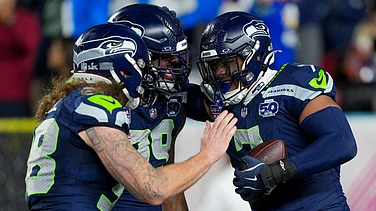CALL it India's happy hunting ground. Or call it mere coincidence. The fact remains: Indian hockey and Malaysiaseem to be made for each other.
It was at Kuala Lumpur that the nation won the World Cup for the first (and so far only) time exactly 20 years ago. Then in 1991, came the triumph at Ipoh (Malaysia's second city) in the Sultan Azlan Shah competition. Last week that title was regained. And though the six-nation event was no World Cup, it has certainly given a boost to Indian hockey's sagging spirits.
How significant is Kuala Lumpur '95? Coach Vasudevan Bhaskaran, who led India to its last Olympic gold at Moscow in 1980, has already sounded a note of caution. "The victory is a great morale-booster. But it should not go to our heads. Still, after 1980 there is finally a team that can develop into a world-beating combination."
The Indian team wore a different look at Kuala Lumpur with the inclusion of some new faces and some old ones who were making their comeback, notably captain Pargat Singh. Says Bhaskaran: "Wholesale changes were made because players were not improving and had to be replaced. This win will certainly give hope to the hockey fraternity. The idea is to play our type of game, which is attacking."
The mini-revival began last year in the Sydney World Cup where the fifth place finish was the country's best since 1975. It also helped India qualify last month for the Champion's Trophy (for the world's top six teams) for the first time since 1989.
The Olympics, where India was a traditional power till the '60s, is the immediate target. But India will now have to qualify at the pre-Olympics at Barcelona in January '96 to make it to the Atlanta Games.
Says Aslam Sher Khan, minister of state in the PMO and hero of Kuala Lumpur '75: "This (triumph) has given us a new lease of life before next year's Atlanta Olympics. But the forward line needs to be strengthened and should be more positive."
"Barcelona would be a different situation. We have to take into consideration the other team's strengths at Kuala Lumpur. Still, there is a lot of confidence that we will make it to Atlanta," says Zafar Iqbal, former coach and captain at the 1984 Los Angeles Olympics.
Is there then the nucleus of a team that can regain the glory of 20 years ago? Ashok Kumar, another star of Kuala Lumpur '75, is sceptical. "One cannot compare the two eras. We gave our life for the title in 1975. Circumstances have changed. But the talent is there; it only has to be tapped properly." The captaincy of Pargat Singh pleases Ashok Kumar: "The victory shows the necessity of a good captain who can hold the team as one unit. That was obvious this time at Kuala Lumpur."
Mukesh Kumar dazzled with his dribbling skills. Zafar and Ashok Kumar agree he was an outstanding player. "One of the top players in the world," says Zafar. "The hero of the tournament," adds Ashok Kumar, who feels Mukesh could excel as, unlike earlier, he is being given a lot of freedom to play his natural game.
Aslam, whose autobiography To Hell With Hockey was an indictment of the Indian hockey set up, points out that the basic reason for the post-'75 slump was the flimsy excuses trotted out after the team finished seventh, instead of going to the root of the problem and analysing the real causes. "There is also the lack of accountability among our officials. If the officials have no responsibility, how then can the players be blamed? This destroys their killer-instinct," says Aslam.
From first in 1975, to last in 1986 and fifth in 1994. What does the future hold for Indian hockey? Aslam is optimistic: "Hockey is in our soil. It only requires water and fertiliser. What we need is a good gardener, which is where the system comes in."
The victory has also placed the Indian Hockey Federation (IHF) in a dilemma. Reportedly, the southern lobby saw to it that Bhaskaran, coach of the 'A' team, was given an opportunity in place of national coach Cedric D'Souza. Now who will be the coach at Barcelona? An embarrassment of riches indeed for the IHF.






















